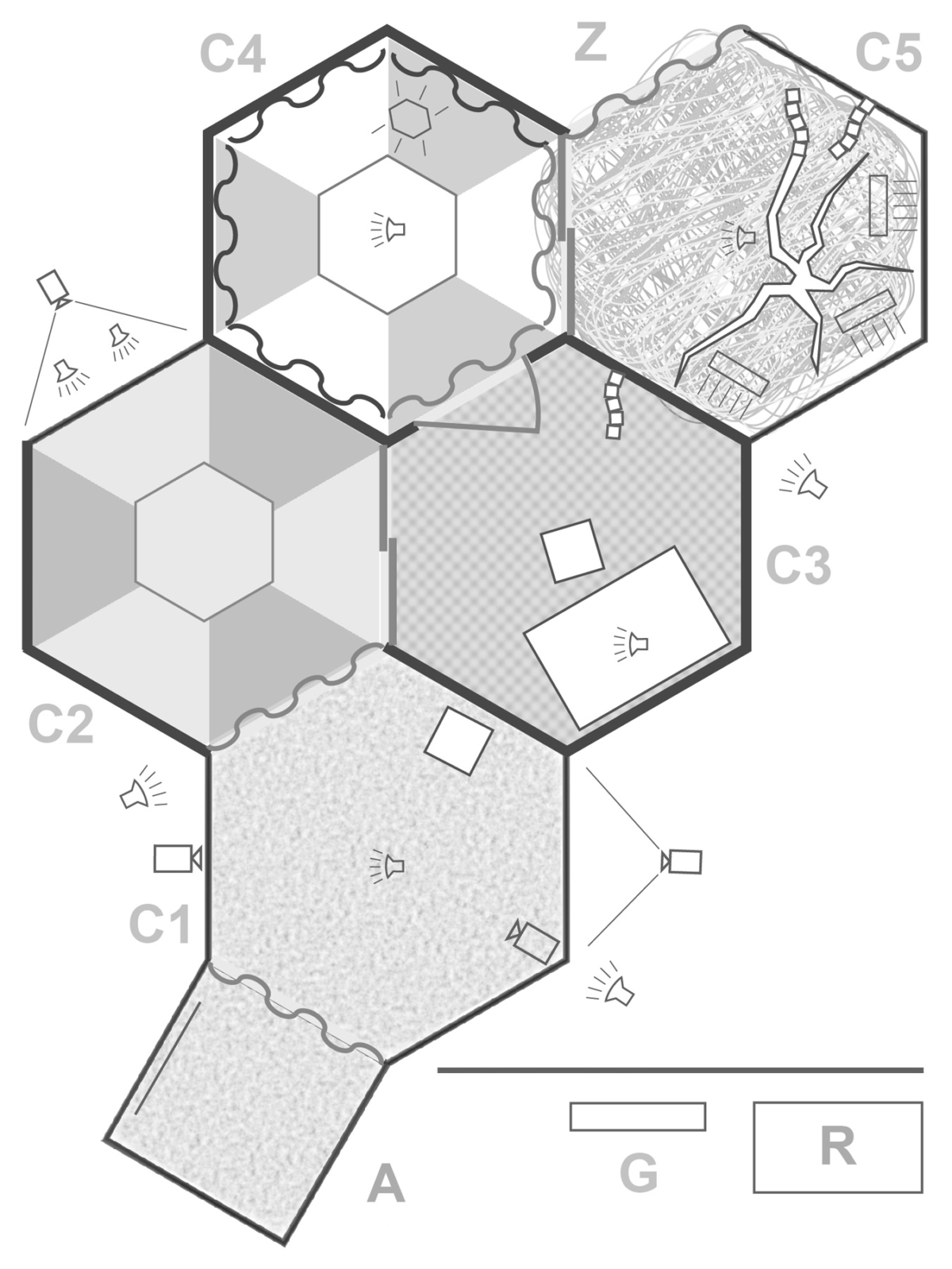The associated processes are to be investigated through the following perspectives and research questions:
- Technology: How does perception emerge in a technologically based sensor-actuator system in contrast to and in resonance with human actors?
- Human: What strategies do humans develop to cognitively and emotionally open up a technologically expanded, responsive environment?
- Design: Which design principles can be derived for an environmentally driven human-machine interaction and how does environmental (ubiquitous) interfacing between the human and the machine work?
Relevant paradigms shall be derived from the theoretical groundwork, which will then be artistically staged and tested in an interactive research facility. The essences of Ubicomp can thus be experienced and evaluated, whereby the focus is not solution- and application-oriented, but a rather critical one. Using sensor data and qualitative ethnographic survey methods, the experiences of the test subjects are recorded, triangulated and evaluated. In this way, the project should contribute to a better understanding and critical assessment of current technological developments and their influence on our living environment, agency and privacy.
